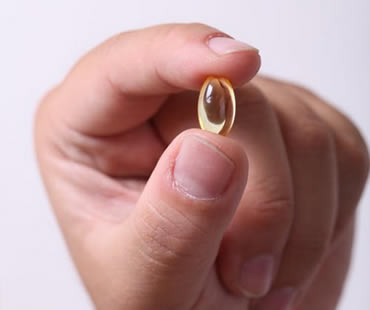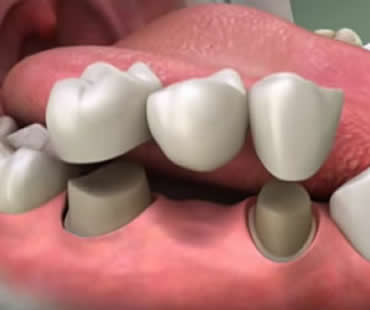
Babies obviously can’t take care of themselves, so parents have to handle all aspects of their care. Don’t forget their oral health! Parents need to lay the groundwork for lifelong good dental habits and healthy smiles for their children. Here are some answers to common questions about baby teeth.
Do baby teeth matter?
Primary, or baby, teeth are important. They help children chew naturally and speak clearly. They provide the place for adult teeth to grown in properly later.
Should I brush my baby’s teeth?
You should brush your baby’s teeth without toothpaste, using a small amount of water instead. Use a small, soft-bristled toothbrush at bedtime to remove plaque and bacteria from your baby’s teeth and gums.
When can I start using toothpaste?
Fluoride toothpaste can be implemented after age two, when a child can be trusted not to swallow the toothpaste. Only use a small amount of toothpaste, and watch the child carefully to ensure proper brushing and spitting out the toothpaste.
When should I take my child to the dentist?
Experts recommend taking your child to the dentist when their first tooth appears, or by their first birthday. Your child should be taken for dental visits every six months, or more often if your dentist has concerns.
Do I need a certain type of dentist for my child?
You may choose a pediatric dentist who has been trained specifically to treat children. Their goal is to teach children about oral hygiene and the importance of taking care of their teeth, as well as provide a comfortable experience in visiting the dentist. However, you may also choose a regular dentist to take care of your child’s oral health. It is up to you to decide which kind of dentist is right for your family.
Schedule your appointment at our Westerville dental office

As we age, our teeth and gums change. Proper care of your teeth as well as eating a good diet can keep your smile beautiful and strong. Certain vitamins and minerals also help promote optimal oral health.
As we age, our teeth and gums change. Proper care of your teeth as well as eating a good diet can keep your smile beautiful and strong. Certain vitamins and minerals also help promote optimal oral health.
Vitamin A
Besides aiding with vision, Vitamin A also helps with the development of healthy teeth and gums. As well, Vitamin A contains beta-carotene, which has antioxidant properties. These antioxidants assist in getting rid of free radicals, chemicals that speed up decay in the body.
Vitamin C
Also called ascorbic acid, Vitamin C assists with the absorption of iron, maintains healthy connective tissues, and promotes strong teeth and gum tissue. Because Vitamin C is water-soluble, it is washed out of the body once it has what it needs, people should take in Vitamin C every day.
Vitamin D
Created after exposure to sunlight, Vitamin D encourages calcium absorption as well as helping keep the right levels of calcium and phosphorous in the blood stream. Children need to get enough Vitamin D so that they will develop healthy teeth and bones, so it is often added to milk.
Calcium
No matter your age, every person needs to take in enough calcium because this mineral is crucial in the development and maintenance of teeth and bones. In fact, your jaw bone forms the foundation that houses your teeth.
Getting What You Need
Eating a balanced diet will ensure that your body has the vitamins and minerals needed to keep your smile vibrant for a lifetime. Dairy products like yogurt and cheese as well as vegetables such as broccoli and peas are high in calcium. Have lots of egg yolks, fatty fish, and fortified dairy products when you need Vitamin D. Citrus fruits, melons, berries, and tomatoes offer plenty of Vitamin C, and you can find Vitamin A in dark green or yellow fruits and vegetables, eggs, or low-fat dairy products.

Preserving the bone in your jaw and face is of utmost importance to your cosmetic dentist, and as such, treatments that preserve bone are preferred over those that lead to bone shrinkage, known as resorption.
Dental implants preserve bone by mimicking the tooth’s natural roots, stimulating and preserving the bone. As part of the healing process following surgical placement, the jawbone fuses directly to the implant. Most often made of titanium, dental implants provide a very stable foundation for a replacement tooth. This foundation is so stable that it can serve as an anchor point for dental bridgework and will feel, look, and function as your natural tooth would.
The process of implant to bone fusion is known as “osseointegration.” Fusion is primarily dependent upon the quality of bone surrounding the implant, and can be achieved in three to nine months following dental implant treatment. Excessive smoking or drinking can stunt the healing process and lead to complications.
Because bone resorption is prevented with dental implants, your facial structure will not collapse and your facial shape will not change. Missing teeth that are replaced by implants avoid other problems commonly associated with tooth loss, including other teeth shifting into the open spaces created by the missing teeth, and functional problems with the jaw joints and bite alignment.
Once a tooth is extracted or falls out, a great deal of the bone in the area will shrink, or resorb over the coming year. Shrinkage occurs in a horizontal as well as vertical dimension. Most resorption occurs within the first two to three months following tooth loss. When a cosmetic dentist replaces that tooth immediately with a titanium dental implant, the bone fuses around the implant, significantly reducing bone shrinkage.
Dental implants are the only restorative treatment that preserves and maintains bone. Dentures and partial dentures can accelerate the process of bone shrinkage as a result of pressure on the underlying mouth structures as you talk or eat.
We treat patients from Westerville and the surrounding area

There are times when a tooth is so damaged from decay, trauma, or cracking that a filling isn’t the best choice. In these cases, a dental crown may be recommended for long-term tooth health. If a tooth is missing completely, your dentist may suggest a dental bridge to fill the gap between two bordering teeth.
Dental crowns, or “caps,” completely cover and protect your damaged tooth. It is bonded in place, giving you a stable, strong, and attractive alternative for your original tooth. Because it is customized for you using impressions your dentist makes of your teeth, it is a perfect match in size, shape, and position to your natural tooth.
Dental crowns can be the perfect solution to a severely damaged tooth. You won’t need to worry about pain, tooth stability, or your appearance when you choose a dental crown. Depending on what material is used, your crown can look as natural as your own tooth.
Dental bridges are designed to span a gap caused by a missing tooth. Having a gap in your smile can affect you in more ways than just cosmetics. Chewing and talking can become problematic as teeth adjacent to the gap begin to shift, leaving the potential for gum disease or jaw issues.
Dental bridges literally bridge the gap between two teeth. They are cemented onto the pair of teeth that border the empty space vacated by one or more missing teeth. The bordering teeth act as anchors for the bridge, and are trimmed down to hold a dental crown. Between the two crowns is a replacement tooth, customized for you by your dentist. Once the bridge is in place, you will regain the ability to smile freely while the bridge maintains the shape of your face and lips. You will speak more clearly and be able to eat a greater variety of foods. A dental crown also protects your healthy teeth from issues related to bite alignment.
Dental crowns and dental bridges are excellent choices for overall dental health, and can last a lifetime. To prevent damage to your dental work, avoid chewing things like ice or hard candy. It is also important to maintain regular dental checkups.
We offer dental crowns at our Westerville dental office









